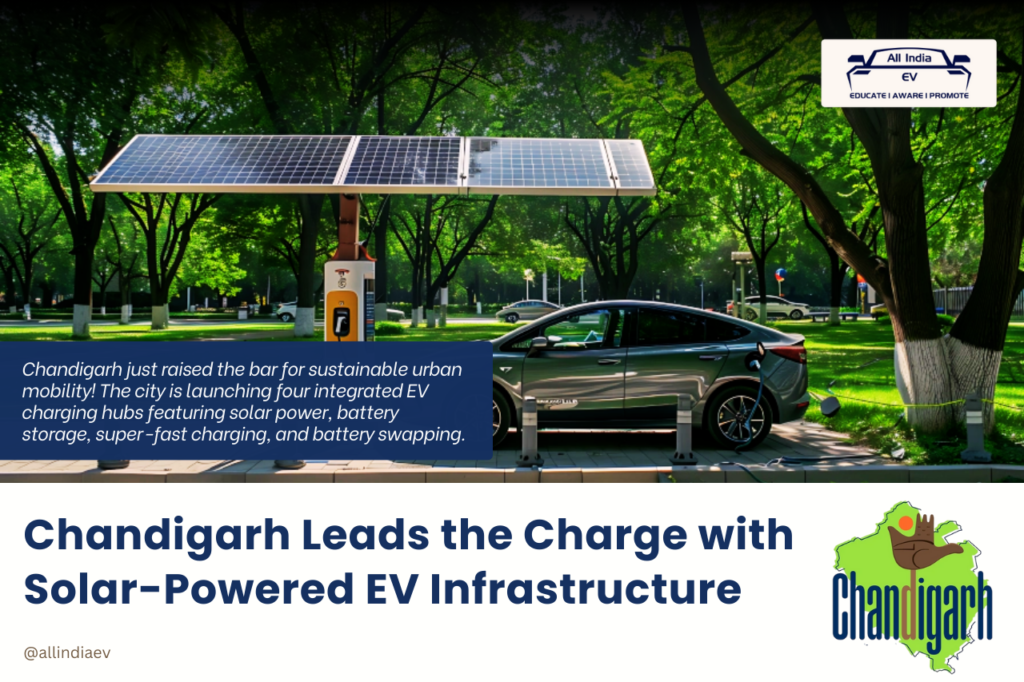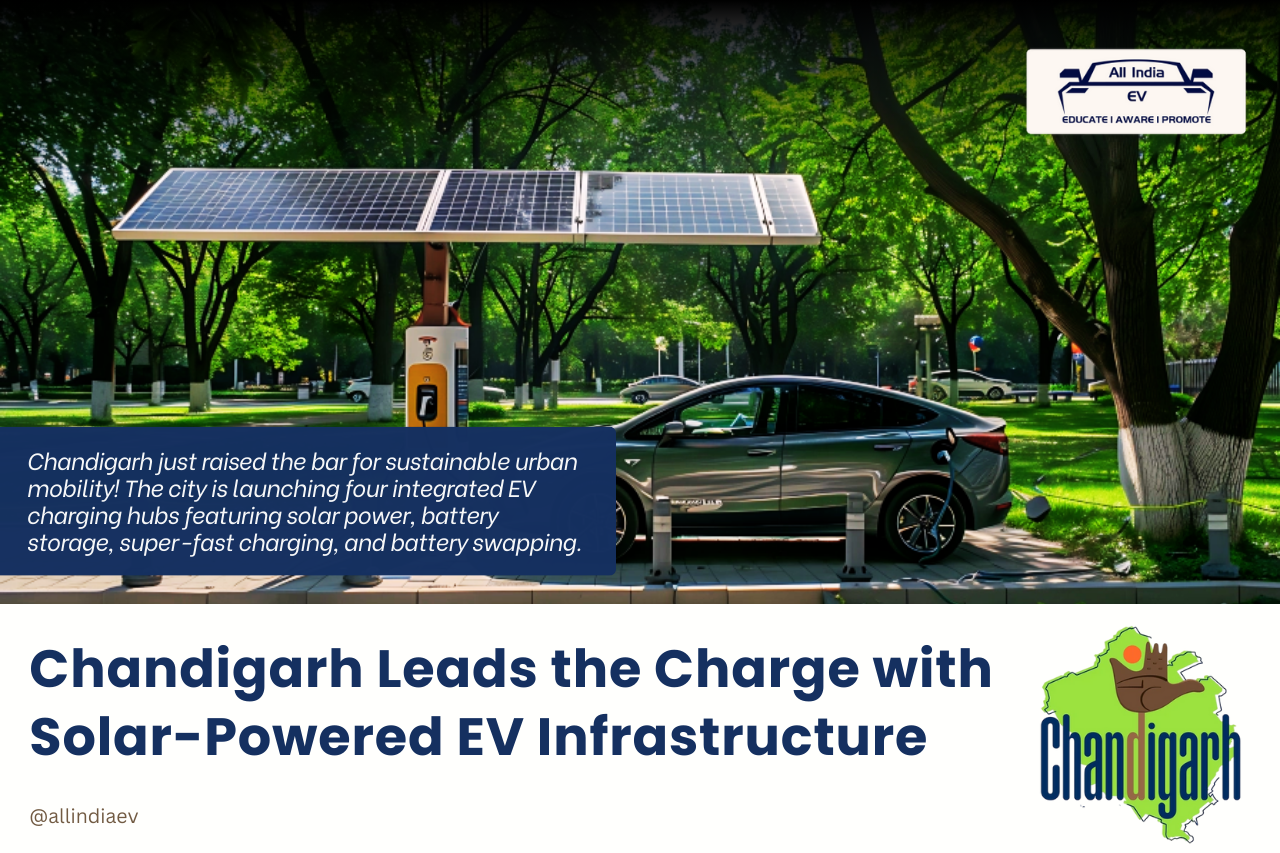
Chandigarh to Replicate Solar-Powered EV Charging Model with Rooftop Panels, Battery Backup, Fast Charging & Swapping at 3 More Sites
In a big push toward sustainable urban mobility, Chandigarh has announced the launch of solar-powered electric vehicle (EV) charging hubs at four strategic locations — IT Park, New Lake Parking (Sector 42), Botanical Garden Parking, and New Grain Market (Sector 39).
The initiative is being implemented by the Chandigarh Renewal Energy and Science & Technology Promotion Society (CREST) and aims to create a fully renewable ecosystem that integrates solar power generation, battery storage, and e-mobility infrastructure.
Flagship Solar EV Project at IT Park
At the heart of the initiative is a 500 kWp solar project to be installed on a parking shed near a mall at Chandigarh’s IT Park. Out of the total generation, 230 kWp will be dedicated to EV charging and battery swapping stations — with 200 kWp for charging and 30 kWp for swapping.
The system will include battery storage facilities, ensuring round-the-clock charging availability even during non-sunny hours. This model will serve as a flagship blueprint to be replicated at other locations across the city.
Expansion Across Three More Locations
The same model will be rolled out at New Lake Parking, Botanical Garden, and New Grain Market, each hub featuring:
- Rooftop solar panels
- Battery backup systems
- Super-fast charging stations
- Battery swapping facilities
- These hubs will support a wide range of EVs, including cars, e-rickshaws, two-wheelers, and commercial vehicles. Battery swapping stations will especially benefit two- and three-wheelers, reducing downtime for fleet operators and delivery partners.
Financially Sustainable OPEX Model
A Union Territory official confirmed that the infrastructure will be developed under an OPEX (Operational Expenditure) model through e-tendering. This allows private sector participation without upfront government subsidies, ensuring a scalable and financially sustainable approach to EV infrastructure.
Rising EV Adoption in Chandigarh
Chandigarh currently has 35 operational public EV charging stations, which have seen a dramatic rise in usage. In June 2024, revenue from these stations was just ₹2,732, but by May 2025, monthly revenue surged to nearly ₹6.4 lakh. Over the first year, the stations collectively generated ₹40 lakh, highlighting growing public adoption of EVs.
Strengthening Clean Energy Goals
With an installed solar capacity of around 90 MW, Chandigarh has been a frontrunner in renewable energy adoption. The new EV-solar integration project strengthens its clean energy roadmap and supports the city’s net-zero emission targets.
How the System Works
- Rooftop solar panels generate power.
- Electricity is stored in batteries for use during night or cloudy periods.
- Stored energy powers EV charging and swapping stations for uninterrupted service.
Key Benefits
- Zero-emission mobility hubs that improve air quality and cut carbon footprint.
- Private investment-driven model without burdening government finances.
- Urban leadership, positioning Chandigarh as a model city for renewable-powered e-mobility.
- Replication potential across other smart cities and urban local bodies in India.
- With this step, Chandigarh is setting a benchmark for integrating renewable energy with EV infrastructure, accelerating its journey toward a green, future-ready city.










